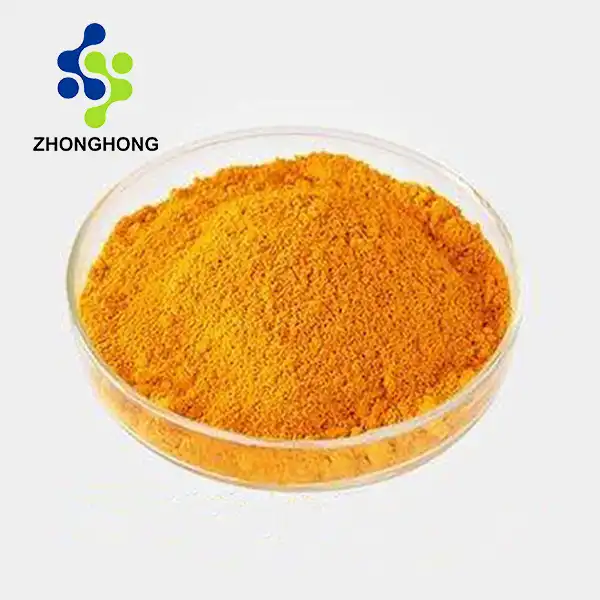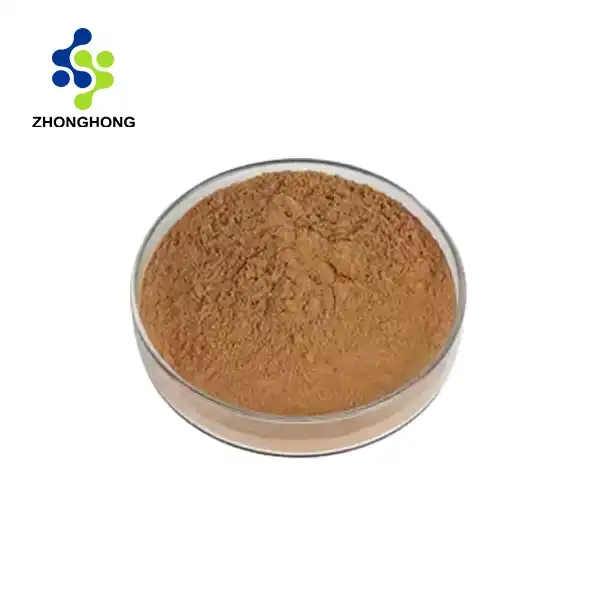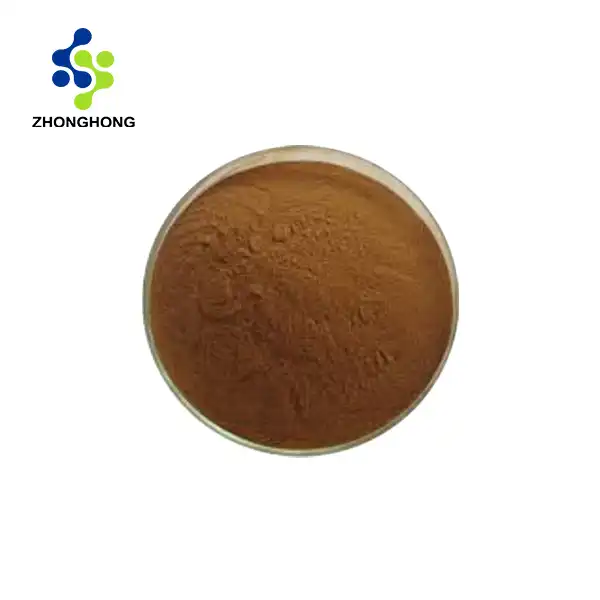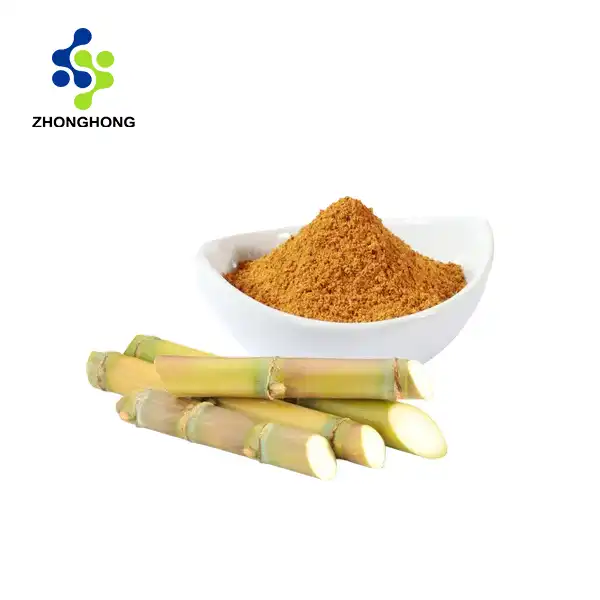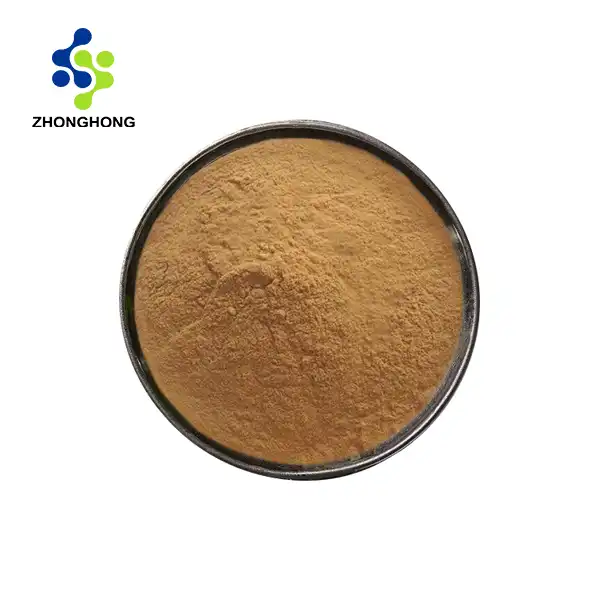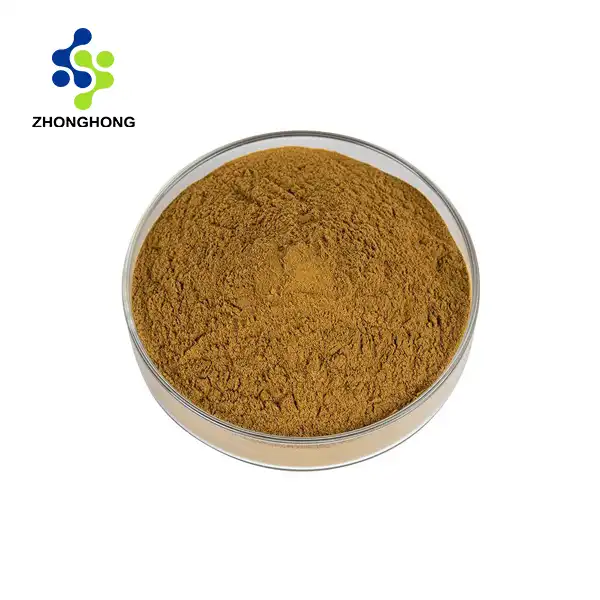Mechanisms of Action: How Matrine Combats Cancer?
Apoptosis Induction
One of the essential instruments through which Matrine applies its anti-cancer impacts is by actuating apoptosis in cancer cells. Apoptosis, or modified cell passing, is a pivotal handle in keeping up cellular homeostasis and avoiding the uncontrolled development of unusual cells. Matrine has been appeared to actuate different apoptotic pathways, counting the mitochondrial-mediated and passing receptor-mediated pathways. By activating these cascades, Matrine successfully advances the self-destruction of cancer cells, subsequently restraining tumor development and movement.
Cell Cycle Arrest
Another significant aspect of Matrine's anti-cancer activity is its ability to induce cell cycle arrest. The cell cycle is a tightly regulated process that controls cell division and growth. Matrine has been observed to interfere with this process, particularly at the G0/G1 and G2/M phases, effectively halting the proliferation of cancer cells. This cell cycle arrest prevents the rapid division and spread of malignant cells, contributing to Matrine Powder's overall anti-tumor effects.
Angiogenesis Inhibition
Angiogenesis, the formation of new blood vessels, plays a crucial role in tumor growth and metastasis. Matrine has demonstrated the capacity to inhibit angiogenesis by downregulating pro-angiogenic factors such as vascular endothelial growth factor (VEGF) and matrix metalloproteinases (MMPs). By limiting the blood supply to tumors, Matrine effectively starves cancer cells of essential nutrients and oxygen, impeding their growth and spread.
Matrine's Efficacy Across Different Cancer Types
Lung Cancer
In the domain of lung cancer investigate, Matrine has appeared promising comes about. Ponders have illustrated that Matrine can repress the expansion of non-small cell lung cancer (NSCLC) cells and actuate apoptosis. In addition, it has been found to upgrade the affectability of lung cancer cells to routine chemotherapy drugs, possibly progressing treatment results. The compound's capacity to target numerous signaling pathways included in lung cancer movement makes it a subject of extraordinary intrigued for creating novel helpful techniques.
Liver Cancer
Matrine's efficacy against hepatocellular carcinoma (HCC), the most common type of liver cancer, has been extensively studied. Research indicates that Matrine can suppress HCC cell growth, induce apoptosis, and inhibit metastasis. Additionally, Matrine has shown potential in combating drug resistance in liver cancer cells, a major challenge in HCC treatment. These findings suggest that Matrine could be a valuable adjunct in liver cancer therapy, potentially improving patient outcomes.
Breast Cancer
In breast cancer studies, Matrine has demonstrated multi-faceted anti-tumor activities. It has been shown to inhibit the proliferation of various breast cancer cell lines, including those resistant to conventional therapies. Matrine Powder's ability to modulate estrogen receptor signaling and suppress inflammatory pathways associated with breast cancer progression makes it a promising candidate for both hormone-dependent and triple-negative breast cancers. Furthermore, its potential to enhance the efficacy of existing breast cancer treatments while reducing their side effects is an area of active research.
Synergistic Effects: Matrine in Combination Therapies
Enhancing Chemotherapy Efficacy
One of the most promising perspectives of Matrine in cancer treatment is its potential to upgrade the adequacy of ordinary chemotherapy drugs. Thinks about have appeared that when utilized in combination with chemotherapeutic specialists, Matrine can increment their cytotoxic impacts on cancer cells whereas possibly diminishing the measurement required. This synergistic impact has been watched with drugs such as cisplatin, doxorubicin, and 5-fluorouracil over different cancer sorts. The capacity of Matrine to sensitize cancer cells to chemotherapy not as it were moves forward treatment results but too may offer assistance relieve a few of the extreme side impacts related with high-dose chemotherapy regimens.
Overcoming Drug Resistance
Drug resistance remains a significant challenge in cancer treatment, often leading to treatment failure and disease progression. Matrine has shown promise in addressing this issue by modulating various mechanisms of drug resistance. For instance, it has been found to reverse multidrug resistance in certain cancer cells by inhibiting the expression of drug efflux pumps. Additionally, Matrine can target cancer stem cells, which are often responsible for drug resistance and tumor recurrence. By incorporating Matrine Powder into combination therapies, there's potential to overcome treatment resistance and improve long-term outcomes for cancer patients.
Immunomodulatory Effects
The immune system plays a crucial role in cancer prevention and treatment. Matrine has demonstrated immunomodulatory properties that could enhance the body's natural defenses against cancer. Studies have shown that Matrine can stimulate the activity of natural killer cells and cytotoxic T lymphocytes, key components of the immune system's anti-tumor response. Furthermore, Matrine has been found to suppress tumor-promoting inflammation while enhancing anti-tumor immune responses. These immunomodulatory effects suggest that Matrine could be a valuable addition to immunotherapy strategies, potentially improving their efficacy and expanding their applicability across different cancer types.
Conclusion
The growing body of research on Matrine Powder's anti-cancer properties presents a compelling case for its potential in cancer treatment. While more clinical studies are needed to fully validate its efficacy and safety, the multifaceted mechanisms through which Matrine combats cancer make it a promising candidate for future therapies. As we continue to unravel the complexities of cancer biology, natural compounds like Matrine offer exciting possibilities for developing more effective and less toxic treatment strategies. If you want to get more information about this product, you can contact us at liaodaohai@gmail.com.
_1728976869676.webp)
